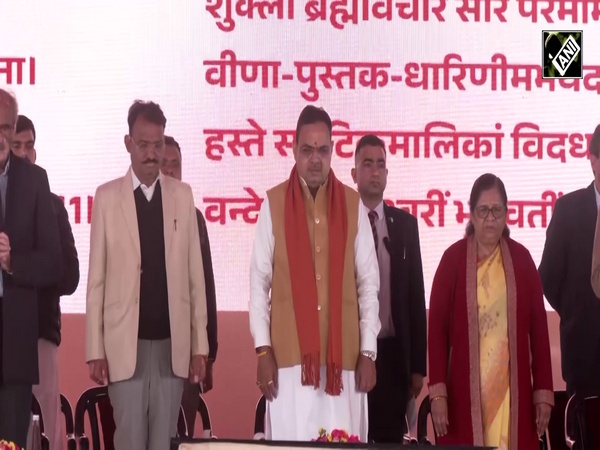US markets sell over red dates processed in China's Xinjiang; tainted by Uyghur forced labour
Sep 05, 2022

Washington [US], September 5 : Markets in Washington, DC, metropolitan area and some online retailers in the US continue to sell more than 70 brands of red dates grown and processed in Xinjiang, a region in China that's been the focus of a US law on forced labour, a report said.
A report released this week by the Washington-based Uyghur Human Rights Project also noted that the 20 per cent of red dates in the global supply chain are likely to be tainted by Uyghur forced labour.
The Xinjiang Construction and Production Corps (XPCC) or "Bingtuan" holds a majority stake in at least 13 red date producing companies, which account for more than 25 per cent of red date production in China. The XPCC, a major paramilitary and corporate organization, is responsible for carrying out mass internment, surveillance, and forced labour in East Turkistan, the report said.
Since July 2020, all financial transactions with the XPCC have been prohibited for US persons under Global Magnitsky Sanctions. However, the report in an investigation reveals that cotton and tomato products from the region have continued to enter the US market.
As of June 21, 2022, all products from the East have been targeted for priority enforcement of the US ban on forced-labour imports, under the Uyghur Forced Labor Prevention Act (UFLPA).
US Customs and Border Protection (CBP) is mandated to detain all products sourced from the Uyghur Region on the presumption that they are the products of forced labour, unless the importer can demonstrate that the product supply chain is free of forced labour.
UHRP's research shows that US food retailers and consumers risk complicity in forced labour and other atrocities, including genocide and crimes against humanity. Between February and August 2022, the project identifies a dozen international grocery stores in the Washington DC metropolitan area and identified red date products sourced from East Turkistan at seven stores.
They also examined online international grocery stores that ship red date products from the Uyghur Region to the DC area. Using global and US trade data from multiple sources, including UN ComTrade, Import Yeti, and Seamless Horizon, they traced red date products in global supply chains back to the Uyghur Region.
The project also reviewed the Chinese government reports, including the National Bureau of Statistics, China Statistical Yearbook, Xinjiang Statistical Yearbook, and XPCC Statistical Yearbook, in addition to records on Weixin (WeChat).
According to the project, China is the world's top producer and exporter of red date products, producing 40 per cent of the world's output. Uyghur Region's output accounted for exactly half of all of China's production or 3.73 million tons of the national 7.46 million-ton total in 2019.
Overall, 20 per cent of the world's red dates come from the Uyghur Region and are likely the products of forced labour. Red dates, also known as jujubes, are a small sweet fruit popular throughout Asia and beyond. They are eaten fresh or dried and can also be processed into numerous forms including jams, teas, and paste. Red dates are promoted as healthy food and are commonly used in traditional medicine in many Asian cultures.
Red dates account for more than 20 per cent of all fruits and nuts produced in East Turkistan and are grown mainly in the south in places such as Kashgar, Aksu, Hotan, Qumul, and Turpan.
Red dates accounted for nearly half of all fruit produced by the XPCC in 2018 (followed by grapes, apples, pears, and walnuts). Of the 3.73 million tons of red dates grown in the Uyghur Region in 2019, the XPCC produced 2 million tons (a quarter of the national total), with the remaining 1.73 million tons grown by various forms of smaller-scale producers.
More than 80 per cent of the cotton produced in China, which constitutes 20 per cent of the world's cotton supply, comes from the Uyghur Region. One in five cotton apparel products and one in five red dates in the global supply chain could therefore be tainted with Uyghur forced labour.
The direct link between red date and cotton production increases the likelihood that red date production is being tainted by Uyghur forced labour. The evidence clearly shows that cotton is produced using forced labour in East Turkistan with Uyghur detainees conscripted to pick raw cotton and to work in factories producing cotton-based yarn and fabric to manufacture apparel for international brands, the report said.
The Uyghur Human Rights Project is a research-based advocacy organization located in Washington, D.C. that promotes human rights for Uyghurs.
According to the UHRP, its main goal is "promoting human rights and democracy for Uyghurs and others living in East Turkistan" through research-based advocacy.


















